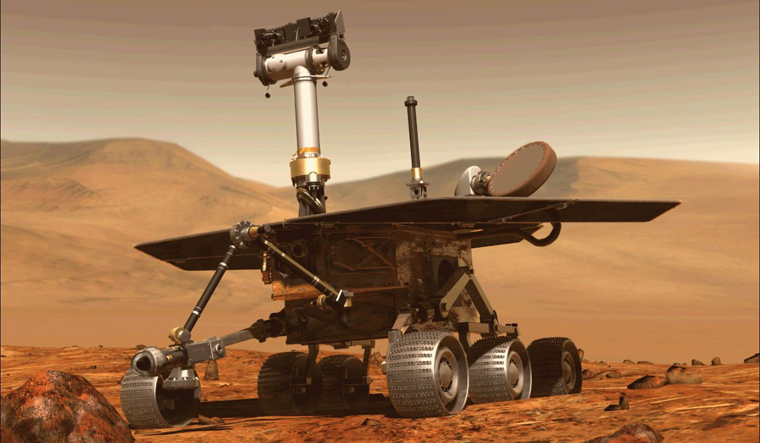NASA officially announced on Wednesday that the Opportunity rover, which changed our understanding of the Red Planet, is dead.
Hailed as one of NASA's most successful ever ventures, Opportunity was exploring Mars' Perseverance Valley. Initially planed for a 90-day mission, the rover declared its mission completed after 5,111 earth days. The Opportunity rover was sent to Mars in 2003 as part of the Mars Exploration Rover (MER) mission.
Opportunity’s solar panels had not been functioning since it suffered a ferocious dust storm in June 2018. So the panels could not provide power to keep the rover alive and all contact was lost since August. NASA tried to waken the rover daily and more than 1,000 recovery commands had been sent. Flight controllers made one last attempt to revive the rover on Tuesday night, and it went unanswered.
Mars Exploration Rover project team at NASA's Jet Propulsion Laboratory came to a conclusion that the likelihood of receiving a signal was far too low to continue recovery efforts.
Scientists at NASA said the last message they received from Opportunity effectively translated to, "My battery is low and it's getting dark."
The exploration work is being continued by Curiosity rover, which landed in 2012. The rover with its plutonium battery, continues to explore another part of Mars, a crater that was once filled with water. NASA has another static lander, called InSight, which landed in November.
NASA hopes that a twin of Curiosity will be joining the mission in February 2021. China and a joint European-Russian collaboration have plans to send rovers to Mars in 2020.
Two rovers were sent to Mar in 2003 as part of the Mars Exploration Rover mission. The first rover, Spirit, declared its mission complete in 2011 after it got stuck in a sand trap in 2009. Opportunity, which landed on January 24, 2004, was the second of the twin rovers sent to Mars.


